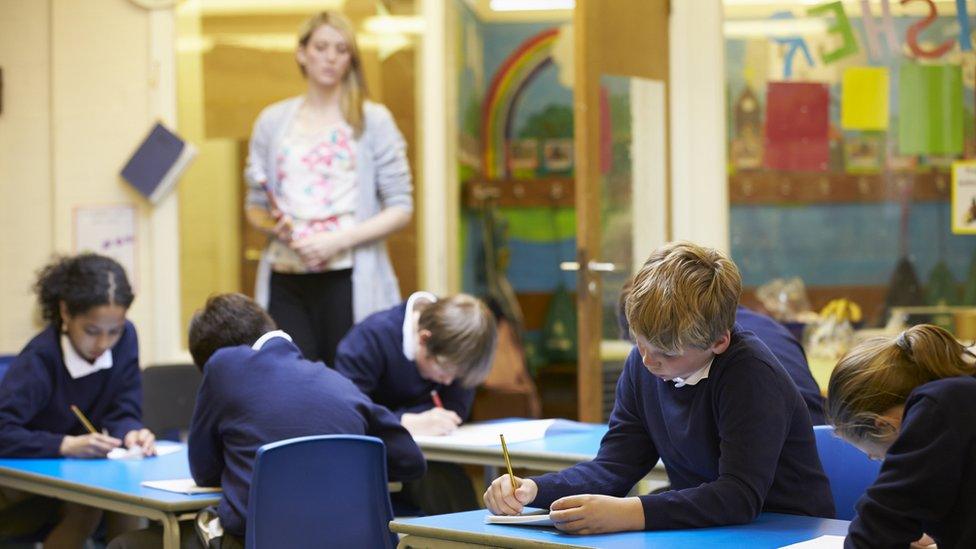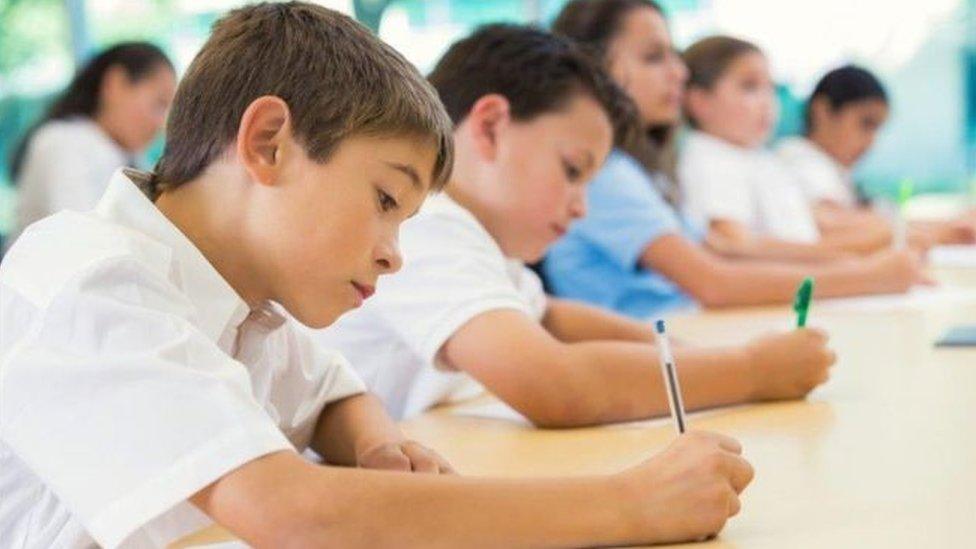Sats: A third below par in reading, writing and maths
- Published

One out of every three 11-year-olds in England has failed to reach the expected levels in all three core subjects of reading, writing and maths.
The Year 6 national curriculum tests, often known as Sats, were taken earlier this term across England.
Changes to the national curriculum in 2016 resulted in the tests becoming more rigorous.
Unions said test-driven primary assessments were damaging children's mental health and wellbeing.
The proportion of pupils reaching the expected level was
65% in reading, writing and maths combined, up from 64% in 2018
78% grammar, spelling and punctuation, unchanged from 2018
79% in maths, up from 75%
73% in reading, down from 75%
78% in writing - unchanged
School Standards Minister Nick Gibb said: "These results show the majority of pupils are leaving primary school ready to deal with the challenges of secondary school.
"The pupils who performed well in these tests will have demonstrated sophisticated grammatical skills like using the subjunctive, the ability to divide fractions and mastery of complex spellings.
"It's testament to the hard work and dedication of teachers that we have seen results rising over time despite the bar of expectation having been raised."
'Intensifies the stress'
Kevin Courtney, joint general secretary of the National Education Union, said: "Over a third of 11-year-olds will arrive in their new secondary school in September knowing that they have been labelled as 'below the expected standard'.
"This demoralising outcome is the result of policy-makers' delusion that to measure the performance of our primary school system it is necessary to test each individual pupil.
"Test-driven primary assessment is damaging children's mental health and wellbeing.
"It intensifies the stress on teachers.
"Preparing children for Sats squeezes out other parts of the curriculum."

Nick Brook, deputy general secretary of school leaders' union NAHT, said the results did not reflect "the full picture of the child's strengths, their talents, or indeed their progress during primary school".
"Sats results and league tables provide nothing more than a snapshot of how children performed on a particular day, in a few short tests, in a limited number of subjects.
"We should therefore avoid celebrating too loudly or berating too strongly schools that rise or fall in their league table position as a result.
"NAHT has long campaigned for less national testing overall in primary schools.
"In reality, Sats tell teachers and parents little that they don't already know about their child or school but have the negative unintended consequences of distracting from teaching and learning and narrowing the focus of the curriculum."
Tiffnie Harris, primary specialist at the Association of School and College Leaders, said the results showed schools were "doing an exceptional job despite the funding pressures".
"The government cannot continue to take educational standards for granted however and must improve the level of funding as a matter of urgency," she added.
In April, Labour leader Jeremy Corbyn said the party would scrap formal tests in primary schools in England if it came into power.